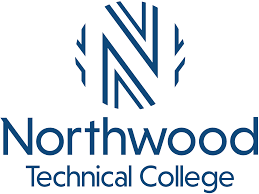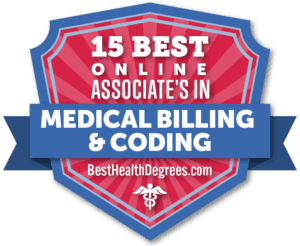
The best Medical Coding and Billing associate degree online offer a great way to get into the growing healthcare industry to start a new career. Medical Billing and Coding is about more than just reimbursement for health services.
Physicians, nurses, and other clinicians rely on certified coders to maintain accurate and timely medical records for their patients. Healthcare providers use these records in diagnostic and also procedures related to a patient’s care. A medical billing and coding associate degree is the quickest and also most affordable way to get into the field.
Our Method: Ranking the 15 Best Medical and Billing Coding Associate Degrees
Best Health Degrees reviewed several associate degree programs in this field and identified 15 programs that may help you in your school search. Programs with accreditation can lead to certification.
To rank the 15 Best Fastest Medical Billing and Coding Degrees, Best Health Degrees editors researched accredited, trusted programs of all kinds. From our initial pool, we ranked the best online schools for medical billing and coding according to price, accreditation, reputation, and salary potential. We use data from IPEDS and Niche, U.S. News and World Report, and other higher education rating publications.
1. Northwood Technical College
You can complete your Medical Administrative Professional Associate degree online with WITC’s program. Students can complete the 60-credit hour coding associate degree program in two years as they continue working.
This online medical billing and coding program will provide you the tools to work in a variety of healthcare settings, accurately managing medical records. Courses you’ll take include quality management, medical terminology, healthcare statistics, healthcare informatics, ethics and law, human diseases, insurance reimbursement, ICD, and CPT coding. Students also take general education courses to round out their degrees.
Northwood Technical College (formerly Wisconsin Indianhead Technology Institute) holds accreditation from Commission on Accreditation for Health Informatics and Information Management (CAHIIM) for this program. This accreditation will allow you to sit for the Registered Health Information Technician (RHIT) certification exam.
Fast Fact: NTC had a 100% RHIT exam pass rate.
Degree Awarded: AS
School: Click to learn more about the medical billing and coding program!
2. Indian Hills Community College

This Iowa school offers an online Health Information Technology, A.A.S. degree and you can complete the 81 credit hour program in 21 months. The curriculum will qualify you to sit for the industry standard, Registered Health Information Technician (RHIT) credentialing exam.
You’ll take a broad range of coursework which includes studies in health records systems and management, reimbursement systems and methods, CPT and ICD coding, compliance, and risk management. The program includes virtual labs where you’ll learn to create and maintain patient health records, utilizing appropriate coding and a variety of computer systems.
A professional experience is part of the curriculum and will provide you with real-world coding and record-keeping experience. Prior to this experience, applicants must provide a background check, drug screen, and dependent adult or child abuse record check.
Fast Fact: IHCC has a 100% graduation rate and a 73% RHIT exam pass rate
Degree Awarded: Associate of Applied Science (AAS) Health Information Technology (HIT)
School: Click to learn more about the medical billing and coding program!
3. Northwest Iowa Community College
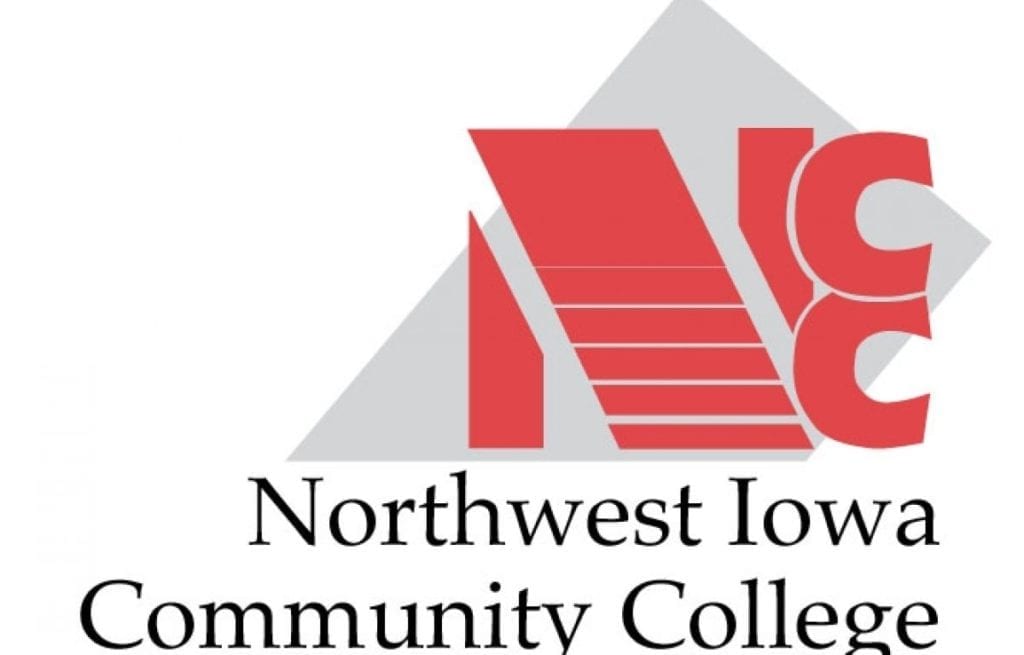
Here’s a 60 credit hour, online AAS Health Information Technology degree which is a CAHIIM program. You can also choose a health records certificate option with this program.
The school accepts full-time students only in the fall semester. But, part-time students can start any term once they complete the prerequisites. Among the online classes are Allied Health Statistics, Medical Coding, Human Anatomy and Pathophysiology, Business Communication, and Legal Aspects of Health Information. Additionally, there are two HIT practicum experiences in this course of study.
The school reports that 100% of students finishing their final practicum experience demonstrated entry-level HIT competencies as determined by their practice supervisor.
Fast Fact: NICC ranks #4 in Niche’s “Best Community Colleges in America”
Degree Awarded: AAS Health Information Technology (HIT)
School: Click to learn more about the medical billing and coding program!
4. Camden County College
This AAS in Health Information Technology at New Jersey’s Camden County College has an impressive 100% student satisfaction rate. The 67 credit hour online medical billing and coding degree will prepare you to analyze and maintain healthcare statistics, coding, and patient records.
CAHIIM accredited, the curriculum encompasses all aspects of HIT requirements. You’ll take coursework in coding including diagnostic, procedural, and ambulatory. Additionally, students take reimbursement, ethics and regulatory issues, anatomy and pathophysiology, and more. A professional practice experience is required in your last semester and may require successful completion of a criminal background check and other records.
Graduates are eligible to take the RHIT certification exam. The school reports a 71 percent first-time exam pass rate.
Fast Fact: Niche reports Camden County College has a 100% acceptance rate
Degree Awarded: AAS
School: medical coding program
5. Central Maine Community College
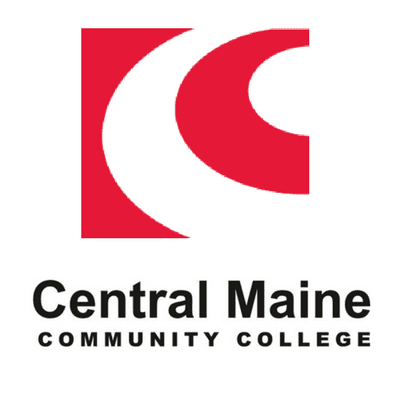
Central Maine Community College offers a 100% online AAS in Medical Coding and Electronic Health Records.
This robust curriculum includes studies in English composition, math, and biology. You’ll study reimbursement systems and methods, ICD, CPT, and HCPS coding, business, and interpersonal communication, and statistics for healthcare. You’ll also be able to participate in a practicum experience with this program design.
The 60-62 credit hour degree is designed to meet the standards for medical billing and coding as described by the American Hospital Association, World Health Organization, and American Medical Association. Once you complete the degree, you’ll be eligible to sit for certification exams offered by the American Health Information Management Association (AHIMA) or the American Academy of Professional Coders (AAPC).
Fast Fact: CMCC is accredited by the New England Commission of Higher Education
Degree Awarded: AAS in Medical Coding & Electronic Health Records
School: Learn more about the medical billing and coding program!
6. Northland Community and Technical College
Northland Community and Technical College offer an online AAS in Medical Coding Specialist. The online medical billing and coding degree requires 60 credit hours and will qualify you to sit for entry-level certification exams.
The program covers a range of coding topics with studies in ICD, CPT, and HCPCS coding, medical language, computer technology, medical billing, and coding ethics, writing composition, as well as electives in history and communication. Another course, titled Job Seeking and Keeping, gives you an overview of what employers are looking for, trends in the field, and employment principles you’ll find throughout your career.
You’ll also become familiar with insurance reimbursement ranging from worker’s compensation, third party payers, disability coverages, Medicare, Medicaid, and the military health benefit known as TRICARE.
Fast Fact: NCTC dates to 1949 and is accredited by the Higher Learning Commission
Degree Awarded: AAS Medical Coding Specialist/medical coding associate’s degree online
School: Click to learn more about the medical billing and coding program!
7. University of New Mexico Gallup

Under the University of New Mexico is the Gallup community college campus. You can earn an online associate Health Information Technology degree which is accredited by CAHIIM.
The medical billing associate degree online program begins in the Summer or Fall semesters and, as the website says, is offered on a “first-come, first-serve basis.” You’ll need to first be accepted into UNM Gallup before applying to the HIT program. The degree requires 71 credit hours for completion, which includes a professional practicum experience.
Among the studies in this degree are health sciences courses (medical terminology, allied healthcare pharmacology), natural sciences (biology, pathophysiology), basic ICD/CPT coding, legal issues in coding, methods of reimbursement, as well as HIT principles. The professional practicum will be conducted in a healthcare facility. If you live outside the UNM-Gallup area, you should discuss your placement with the HIT director.
You may qualify for scholarships through the New Mexico Health Information Management Association, American Health Information Management Association, and American Health Information Management Association Veterans Scholarship.
Fast Fact: Founded in 1968
Degree Awarded: AAS Health Information Technology
School: Click to learn more about the medical billing and coding program!
8. Valencia College
Located in Orlando, Florida, Valencia College has an online AS degree in Health Information Technology. The program focuses on patient record coding and management, legal and ethical issues in coding, and the security of patient health records.
This program is a great stepping stone to a bachelor’s degree at Valencia College in Business and Organizational Leadership which will prepare you for a managerial or supervisory role in HIT.
In the 70 credit hours required for this degree, you’ll study not only CPT/ICD coding, but algebra, disease principles, computer fundamentals, supervision and management, human anatomy, physiology, as well as a practicum. Some courses may require prerequisite study.
Fast Fact: Valencia College holds accreditation from the Southern Association of Colleges and Schools, Commission on Colleges.
Degree Awarded: AS
School: Click to learn more about the medical billing and coding program!
9. Dakota State University
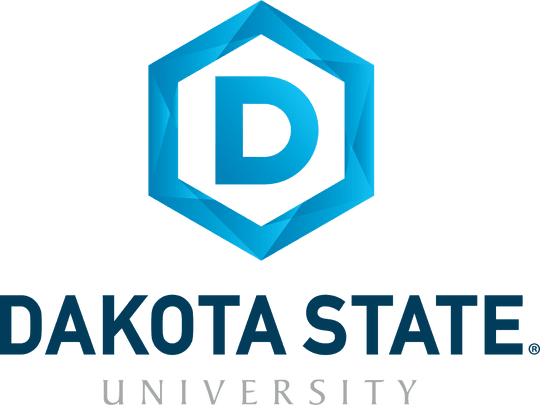
This Health Information Technology degree prepares students for RHIT certification once they graduate.
Accredited by the CAHIIM, this program can train you for a variety of healthcare positions as a coding specialist, health data analyst, or physician practice manager, among others.
The 64 credit hour curriculum offers studies in 18 hours in general education courses (English, biology, algebra, etc.) and 46 credit hours in HIT classes. Some of the classes you’ll take include Basic Medical Terminology, Physiology, Fundamentals of Disease and Diagnosis Coding, HIM Quality Management, Revenue Cycle Management, and more. You’ll also complete a Supervised Professional Practice experience.
Fast Fact: 100% of graduates working in healthcare within 6 months of graduation
Degree Awarded: AS
10. Washburn University
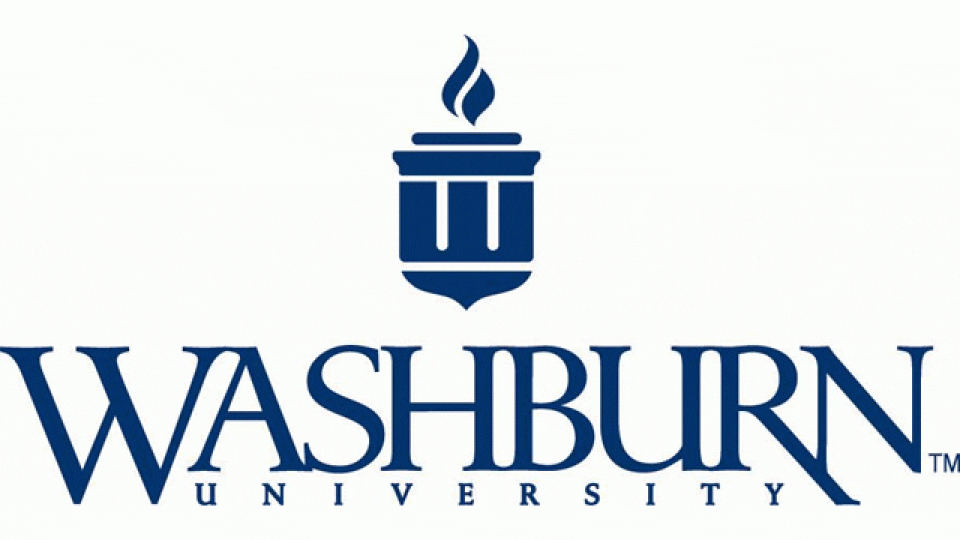
This Topeka, Kansas University has a Health Information Technology associate degree offered through its Department of Allied Health. The 73 credit hour curriculum provides a strong foundation for HIT education.
You’ll study courses in physiology, healthcare statistics, health information coding, healthcare policies, human disease, anatomy, reimbursement methodologies, principles of HIT, and others. General education subjects for this program will cover math, technical and business writing. There’s also a practicum experience required for this degree.
Washburn University’s HIT program is accredited by CAHIIM and has impressive RHIT exam and first-time pass rates.
Fast Fact: Program RHIT pass rate 75% and a national pass rate of 73%
Degree Awarded: AS
School: Click to learn more about the medical billing and coding program!
11. Northeast Iowa Community College
Here’s a 68 credit hour, CAHIIM accredited, AAS in Health Information Technology you can complete online. You can enroll at anytime, but the course sequence begins in the fall semester.
The curriculum covers Human Anatomy and Physiology, appropriate Medical Terminology, Health Records Management, ICD-10 Coding, Introduction to CPT Coding, CPT-4 Coding, and Legal Aspects of Health Information. You’ll also take courses in information systems, reimbursement methods, and professional practice experience. The program requires 15 credit hours of general education coursework in math, science or social science, humanities, and communication.
When you graduate, you’ll be eligible to sit for the RHIT certification exam.
Fast Fact: Niche recognizes NICC as one of its “Best Community Colleges in America”
Degree Awarded: AAS
School: Click to learn more about the medical billing and coding program!
12. Weber State University
Located in Ogden, Utah, WSU has a Health Information Technology you can, as the website says, “…study in your pajamas.”
This program (and the school’s BS degree) is accredited by CAHIIM to prepare you for the RHIT exam. The curriculum gives you the required education in medical terminology, health information systems, ICD-10 and diagnostic coding, healthcare records privacy, healthcare informatics, as well as other topics. You’ll also need to complete a professional practice experience.
Prior to your practical experience, you’ll need to provide a criminal background check, health records, and drug test results.
Fast Fact: U.S. News and World Report places Weber State University at #40 in its “Top Public Schools” rankings
Degree Awarded: Associate of Applied Science (AAS) in Health Information Technology (HIT)
13. Minnesota State Community and Technical College
Known by students as M State, this school has an online, AAS Health Information Technology and Coding degree.
The program is accredited by CAHIIM and requires 64 credit hours for completion. Designed to train you in the various aspects of HIT, you’ll learn the requirements of ICD and CPT/HCPCS coding, strategies and concepts for EHR (electronic health record) establishment and maintenance, policies governing EHR such as privacy, federal regulations, ethics, and laws. You’ll also be taught the maintenance and information sharing of EHR, verification of records and interpretation.
Following successful completion of the AAS degree, you’ll be qualified to sit for the RHIT credentialing exam. If you qualify, this program is eligible for M State’s Workforce Development Scholarship, up to a maximum of $5,000 over four semesters. Scholarships are awarded on a first-come, first-serve basis, and recipients are announced on May 1.
Fast Fact: M State ranks in the top 30 of Niche’s “Best Community Colleges in America”
Degree Awarded: AAS Health Information Technology and Coding
School: Learn more about the medical billing and coding program!
14. Fresno City College
Fresno City College has two associate degrees in Health Information Technology. The programs offered in Health Information Technology include an Associate of Science degree in HIT or an AS in Health Information Technology: Revenue Management.
The HIT program requires 49 credit hours of foundational health information courses, including CPT coding, disease processes, biology, healthcare terminology, pharmacology, quality improvement measures, reimbursement, etc. Both tracks have accreditation from CAHIIM and allow you to sit for credentialing exams, such as RHIT.
There is a directed practice with this degree and you’ll need to successfully complete a criminal background check and drug screen prior to placement.
The Associate program requires 60 credit hours for completion along with the 49 credit hours for your major. These hours will include general education coursework.
Fast Fact: Fresno City College started in 1910 and is California’s first community college
Degree Awarded: AAS
School: Click to learn more about the medical billing and coding program!
15. Laramie County Community College
Wyoming’s Laramie County Community College supports an AAS in Health Information Technology and Management through its distance education programming.
The school describes this as a “multi-level, or stacked” program, allowing you to obtain a Medical Essentials diploma, a Medical Claims Coding Associate program, or an Associate of Applied Science degree in Health Information Technology. The AAS in HIT combines components of the diploma and AS degree which will provide you with leadership and managerial training.
In four semesters, you can complete studies in medical terminology, basic ICD-10-CM/PCS coding, and disease processes. reimbursement, communication, and more. There’s also professional practice experience which will require background checks and drug screening. Students must also complete a course in either the US or Wyoming Constitution.
Fast Fact: LCCC holds regional accreditation from the Higher Learning Commission
Degree Awarded: AAS
School: Visit the program
How Do You Choose the Best Medical Billing Associate Online?
You’ll probably want to look for several things during your program search for a coding degree online.
Accreditation
You should look for programs that have accreditation. This designation will let you know the online program meets the educational quality of national programs. In the case of Medical Billing and Coding, you may want to look at programs accredited by the Commission on Accreditation for Health Informatics and Information Management (CAHIIM) or the American Academy of Professional Coders (AAPC) which will help you prepare to sit for credentialing exams.
Schools should have regional accreditation from organizations such as the Higher Learning Commission (HLC). The programs we listed all hold regional accreditation.
Cost and financial aid
Tuition cost is always a concern. Accredited, online degree programs qualify to receive federal financial aid. You’ll want to apply for the Free Application for Federal Student Aid (FAFSA) which will determine your eligibility. Also, schools will frequently offer scholarships and grants and will use the FAFSA in making final decisions.
Nearly 20 states offer free tuition for in-state students at community and technical colleges. You’ll want to see if your state is one of them.
Curriculum
What you study is important. So, find a program that prepares you to sit for the Certified Professional Coder (CPC) or Registered Health Information Technician (RHIT) exams. Two-year degrees usually include general education courses in topics such as English, humanities, and social science, along with core studies in your major.
Look for medical coder programs that offer classes in ICD-10 and current procedural terminology coding (CPT), reimbursement methodologies, records management, report writing, etc. A program with professional practice experience is also a good idea.
What If You Don’t Want a Degree?
It’s possible to study to enter the Medical Billing and Coding field by taking training courses offered by either the American Academy of Professional Coders (AAPC) or the American Health Information Management Association (AHIMA).
That said, the health care industry values education. So an associate, bachelor’s, or graduate degree will often give you a leg up in terms of employment.
Can You Get a Medical Billing and Coding Certificate Online?
Both the AAPC and AHIMA, in response to the 2020 coronavirus pandemic, developed online certification programs. These coding programs will allow you to access study guides, practice tests, and resources in addition to taking the proctored exam online.
What Do you Learn in a Medical Coding Program?
A medical biller degree or medical coding program provides students with entry-level medical coding positions. Students learn basic and advanced coding methods, ethical conduct, and also principles of patient privacy. Additionally, graduates should have a thorough understanding of anatomy, physiology, medical terminology, and disease processes.
Listed below is some common coursework in a two year medical coding and billing program.
- Patient Privacy
- Procedure Coding
- Current Procedural Terminology Coding
- International Classification of Diseases
- Health Systems
- Certification Review
- Health Insurance Portability
- Current Procedural Terminology Coding II
- International Classification of Diseases
- Healthcare Law
- Coding Procedures
- Health Information Management Concepts
- Body Systems
- Advanced Coding
- Pathophysiology and Pharmacology
- Ethics and Professionalism
- Insurance Claims, Processing and Adjudication
- Introduction to Anatomy and Physiology
What are Common Coding Certifications?
Most medical billing and coding programs prepare graduates for industry certification exams. Two popular medical coding certificate associate exams are listed below.
- Certified Coding Specialist (CCS) – American Health Information Management Association (AHIMA)
- Certified Professional Coder (CPC) – American Academy of Professional Coders (AAPC)
What is the Job Outlook for a Medical Biller and Coder?
Is medical billing and coding a good career? The BLS projects the addition of around 34,000 new jobs each year in this profession. Furthermore, the job growth rate from 2020 to 2030 is 9 percent for medical records and health information specialists. Furthermore, a certified coding associate can earn more than an individual with no certification.
How Much Can I Make in Medical Billing and Coding?
According to the May 2021 BLS information, professional coding specialists earn earned a median annual salary of $45,240. Salaries for CPC and/or RHIT certified coders can range, according to the Bureau of Labor Statistics, between $35,520-$40,350 annually. Entry-level job salaries may be around $26,550 a year, with some experienced coders earning $66,260 annually.
Where Do Medical Billers and Coders Work?
Of course, medical assistant programs estimate what you earn can be dependent on where you work and live. Coders can find jobs in most places that offer medical services. Listed below are some examples.
- physician offices
- healthcare organization
- hospitals and other medical facilities
- outpatient clinics
- home health agencies
- long-term care facilities
- insurance companies
- government agencies (i.e., Medicare or Medicaid)
Your overall compensation may also include benefits such as retirement, sick leave, child care, and also paid time off. Some medical coders and medical billers work independently and freelance their services. Of course, that also impacts earning potential.
What Jobs Can you get in Medical Billing and Coding?
There are many jobs available for individuals with a degree in medical billing and coding. Some titles for these medical office professionals are medical records technician, insurance claims specialist, and certified inpatient coder,
Health Information Technician
Health information technicians enter codes, validate records requests, and handle legal requests. They may also handle additional basic office tasks.
Median Annual Salary: $39,490
Medical Billing Specialist
This job focuses exclusively on medical billing. These professionals deal with insurance companies and third-party vendors to resolve problems and provide clarifications.
Average Salary: $39,910
Medical Auditor
An auditor goes through numbers with a sharp eye to find abnormalities or errors. These professionals make the coding system more efficient and are expected to make recommendations for improvements.
Average Salary: $58,970
Related Medical Billing and Coding:
- 25 Best Medical Billing and Coding Associate’s Degrees
- What Can I Do With A Medical Billing And Coding Degree?
- 10 Fastest Medical Billing and Coding Associate’s Degrees
- What Degrees are Available in Medical Billing and Coding?
- What Jobs are Available in Medical Billing Careers?
- 10 Fastest Online RHIT Programs
Related Medical Billing and Coding:
- Best Online Counseling Master’s Programs
- 15 Best Online Psychology Master’s Programs
- Best Public Health Bachelor’s Degrees
- 10 Fastest Online Psychology Master’s Programs
- 25 Best Counseling Bachelor’s Programs
- 15 Best Online Counseling Masters Programs
- Best Occupational Safety Bachelor’s Degrees
- 25 Best Counseling Master’s Programs
- 10 Fastest Online Counseling Master’s Programs
- The 10 Cheapest Psychology Degree Online
